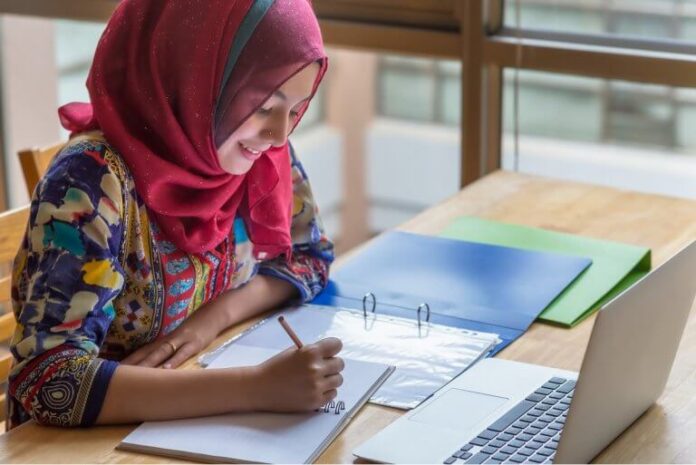In a world marked by disparities and challenges, Islamic charities stand out for their unwavering commitment to uplifting communities through education and healthcare initiatives. But what lies behind this prioritization? Why do Islamic charities focus on education and healthcare? Let’s embark on a journey to unravel the essence of this noble pursuit, delving into the core principles and beliefs that steer their philanthropic endeavors.
Understanding the Motivation

Islamic charities are driven by a profound sense of compassion and duty ingrained in the fabric of Islam itself. Benevolence and compassion towards fellow human beings are not just encouraged but mandated in Islam. This foundational principle, rooted in the teachings of the Quran and the traditions of Prophet Muhammad (peace be upon him), forms the bedrock of Islamic charities’ mission to alleviate suffering and empower communities.
Upholding the Tenets of Islam
- Education as Enlightenment:
- In Islam, knowledge is revered as a divine gift and a pathway to enlightenment. Islamic charities prioritize education as a means to empower individuals, eradicate ignorance, and foster socio-economic development within communities.
- Qur’anic injunctions emphasize the pursuit of knowledge as a sacred duty incumbent upon every Muslim, irrespective of gender or social status. By investing in education, Islamic charities uphold this divine mandate, envisioning a world where every individual has the opportunity to flourish intellectually.
- Healthcare as Human Dignity:
- Central to Islamic teachings is the concept of human dignity and the sanctity of life. Healthcare, therefore, is not just a service but a fundamental right that must be accessible to all.
- Islamic charities channel their resources towards healthcare initiatives to ensure that the marginalized and underserved receive the medical care they deserve. By addressing health disparities and promoting well-being, they uphold the Islamic values of compassion and justice.
Fostering Sustainable Change: The Impact of Education and Healthcare

The emphasis on education and healthcare by Islamic charities is not merely altruistic but strategic, aiming for sustainable change that transcends generations. By investing in these foundational pillars, Islamic charities lay the groundwork for holistic development and empowerment.
Education: Empowering Minds, Transforming Lives
- Breaking the Cycle of Poverty: Education serves as a potent antidote to poverty, empowering individuals to break free from the shackles of economic deprivation. Islamic charities recognize the transformative power of education in equipping individuals with the knowledge and skills necessary to secure dignified livelihoods.
- Promoting Gender Equality: In many societies, gender disparities persist in access to education, depriving girls of the opportunity to fulfill their potential. Islamic charities champion gender equality by providing educational opportunities to girls, thereby challenging entrenched norms and fostering inclusive societies.
Healthcare: Nurturing Bodies, Preserving Lives
- Combatting Disease and Disability: Access to healthcare is a fundamental human right, yet millions around the world lack adequate medical services. Islamic charities intervene by establishing clinics, hospitals, and medical programs aimed at combating diseases and disabilities that plague vulnerable communities.
- Preventive Care and Public Health: Beyond curative interventions, Islamic charities prioritize preventive care and public health initiatives to address underlying health determinants and promote community well-being. From vaccination drives to hygiene awareness campaigns, these efforts contribute to a healthier and more resilient society.
FAQs: Demystifying Common Queries
1. Why do Islamic charities focus on education and healthcare instead of other sectors?
- Education and healthcare are foundational to human development and well-being. By investing in these sectors, Islamic charities address root causes of poverty and suffering, paving the way for sustainable change.
2. Are Islamic charities exclusively for Muslims?
- Not at all. While Islamic charities may draw inspiration from Islamic principles, their humanitarian aid is extended to people of all faiths and backgrounds, guided by the universal values of compassion and solidarity.
3. How can individuals support Islamic charities’ efforts in education and healthcare?
- There are various ways to contribute, including monetary donations, volunteering, and raising awareness about the importance of education and healthcare in building thriving communities.
Conclusion: Towards a Compassionate Future
In essence, the focus of Islamic charities on education and healthcare epitomizes the timeless values of compassion, justice, and human dignity enshrined in Islam. Through their tireless efforts, these charities not only alleviate immediate suffering but also sow the seeds of hope and resilience for generations to come. As we reflect on their noble endeavors, let us join hands in building a more inclusive and compassionate world, where education and healthcare serve as beacons of hope for all.
Why Do Islamic Charities Focus on Education and Healthcare? The answer lies not only in the teachings of Islam but in the unwavering commitment to serve humanity with compassion and integrity.


